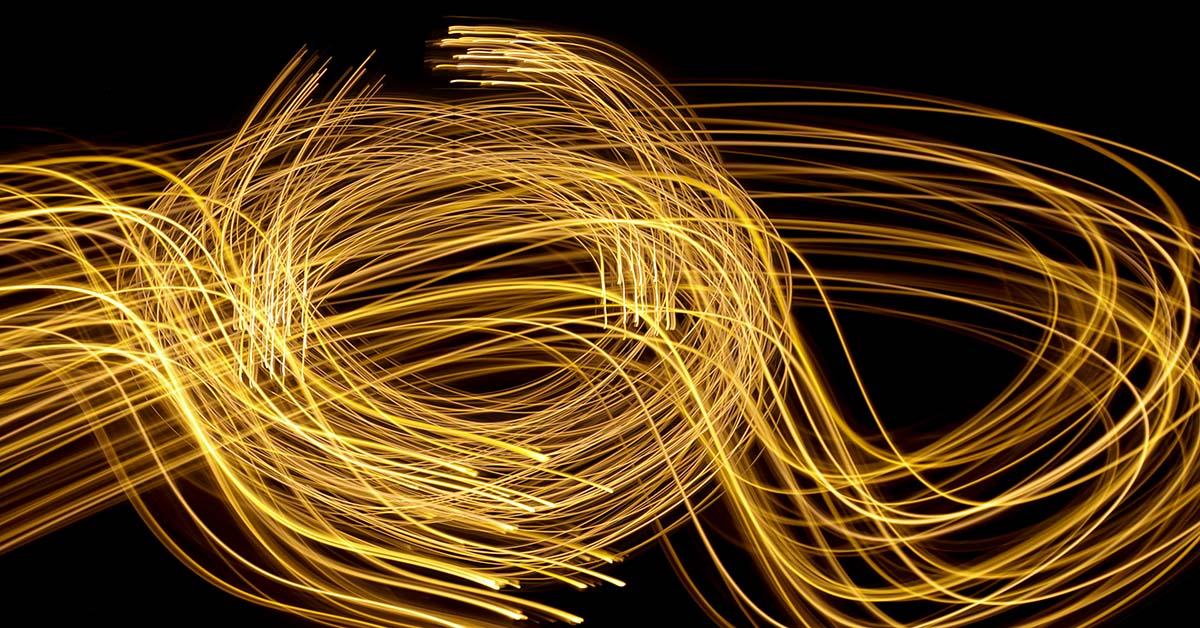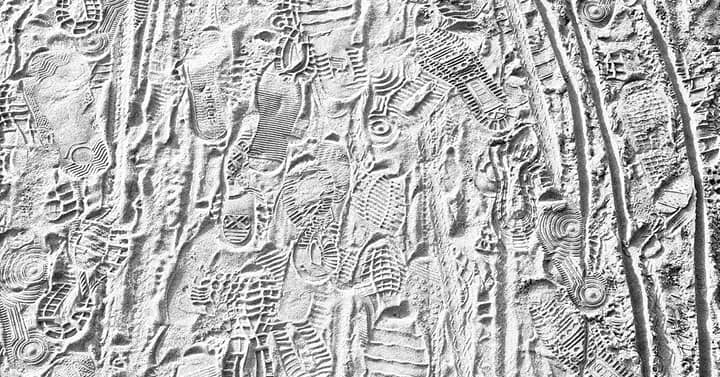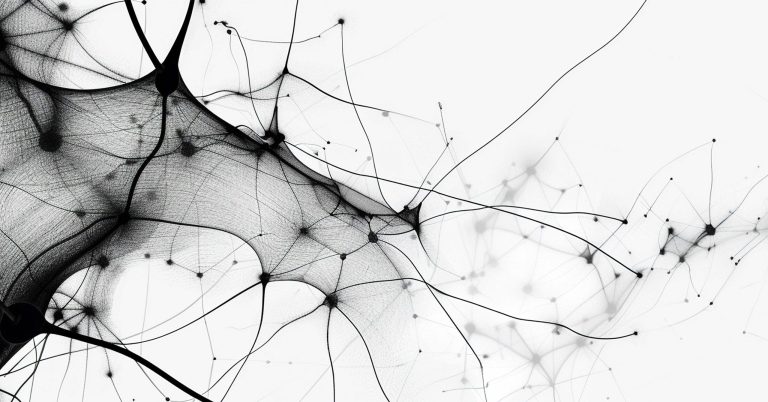
2025 marks the centenary of the birth of Gilles Deleuze. Throughout the year, we’ll be taking the opportunity to explore the impact of this towering figure in twentieth-century philosophy.
As part of this celebration, we’re publishing a series of blogs from leading Deleuze scholars. Read on to discover how Deleuze’s philosophy transformed Brian Massumi’s way of thinking and being.
Find out more about our centenary celebrations.
By Brian Massumi
‘Breadth of thought reacting with intensity of sensitive experience.’ This is Whitehead’s statement of what justifies a metaphysical system. It is also, he says, the ‘ultimate claim of existence.’ Thought is for life; life is ‘aim at intensity.’
Few philosophies deliver on this immediate entanglement of abstract thought and ‘zest’ for life. Deleuze’s (and Deleuze and Guattari’s, and Guattari’s) do. That is why I took to it – or it took me.
Suffering through adolescence in an arch-conservative region of the United States, breadth of thought paired with intensity of sensitive experience was not generally on offer. The atmosphere was stiflingly anti-intellectual. Support for militarism and the Vietnam War was reflexive. Gender norms allowed of no plasticity. The budding environmental movement, into which I dived headlong, was considered ‘un-American.’ It was all about American, male, human supremacy. As for intensity, it was mistaken for stimulation. I recently read a psychology study that, it struck me, retrospectively summed it up. People were asked to sit quietly alone in a room with their thoughts for between six and fifteen minutes. They were given the option to cut off the thinking by self-administering mild electric shocks. Two thirds of men chose the stimulation. Urge to unthinking. If this were a city, it would be Phoenix, Arizona (circa 1970 in chronological time, corresponding to 1955 in cultural time). Had I not banded together with a tiny pack of fellow misfits, all of whom today would be considered neurodiverse, it would have been unlivable.
In reaction, I became a compulsive thinker. I intuitively yearned for the entanglement of abstract thought and zest for life, so missing in the drab normality my general surroundings offered me. I didn’t experience it as optional. It was a necessity of survival. I understood at some level that I had to think hard to get out alive. The endeavour would eventually detour me from the environmental activism to which I had intended to dedicate my life, into philosophy. That philosophical pursuit of life became a life pursuit.
Merleau-Ponty’s existential phenomenology fufilled the need for a time. But then I was administered a different kind of shock: Anti-Oedipus. I was inspired to read the book by the eponymous issue of Semiotext(e), published in 1977. Reading Anti-Oedipus delivered a true dose of intensity. The thinking struck me as infinitely precise – if only I could grasp the key to its precision! – and as stormy as a massing thunder cloud. It was expansive, leading, it seemed, in all directions, across a plethora of disciplines. Its language crossed levels as well, from the crassest interjection to the most scholastic formulation. The topics covered all levels of the world’s order, from many sexes of the molecular to the Absolute State. Its intensity was the way it multiplied potential trajectories across the levels and orders, in varying directions, each adding an emergent shape to the billow of thought. This was not mere thought, wan reflection. It was a staging of potential, in the living, for the living, for a more to life. The book followed me through my days. It infected my perceptions. If perception, as Bergson said, is virtual action, then thinking one’s way into new powers of perception expands the field of potential actions. Or as Spinoza says, an increase in the power of thought coincides with an increase in the power to act. Foucault’s comment in the preface to the English translation that Anti-Oedipus was an introduction to non-fascist life is not a throw-away line. It’s a life-line. The concepts’ staging of potential is enactive: its intensity demands that the concepts be lived, in as exploratory a manner as they are deployed in the writing. This cannot be done under the mantle of reaction. It can only be done in the book’s own mode of urgent, exigent, affirmation.
Merleau-Ponty, once much loved, was no longer so vital. Against his humanism, Anti-Oedipus beckoned to regions beyond. It opened the enclosure of the all-too-individual sense of the human to transindividual breadth of movement, on an infinitely textured nature-culture continuum. The world, it signaled, extended far beyond the six-foot high suburban fence hemming the modern capitalist nuclear-family home. What vistas! The allure was immediate, but the precision would come only slowly, over years of reading other works by Deleuze and by Guattari. Most of all A Thousand Plateaus, whose painstaking patience and constructive sobriety did not so much, in my reading, repudiate Anti-Oedipus as otherwise intensify the movement of thought running through it. Lines of their thinking also led out, into adjacently entwined philosophies, such as those of Bergson, James, Simondon, Ruyer and especially Whitehead.
I recently received an email from a Chinese philosophy student asking if I embraced the category ‘post-Deleuzian.’ It was implied my work was assigned that category in China, I assume because of the increasing presence of Whitehead in it and on the more general level, the presupposition of a period-based approach to the history of thought taking it for granted that, a hundred years on from Deleuze’s birth, we must necessarily be on to somewhere else. The question took me aback. My immediate reaction was: once affected by Deleuzian thought, there is no post-. There is ‘after’ Deleuze, but in the sense of an aftermath. What it is to think, reacting with sensitivities of experience, will have forever been changed. The momentum of the work encourages coursings away from it. But at the same time its power to affect abides, setting the lure to eddy back. Case in point from my own trajectory: when it came time to grapple with what was singular about contemporary fascism the only way forward seemed to be to circle back, to Anti-Oedipus – still, to my mind, the most potent prolegomenon to non-fascist thinking for anti-fascist life ever written. But the ‘aftering’ also holds on the larger cultural level as well. ‘Philosophy,’ Whitehead writes, ‘never reverts to its old position after the shock of a great philosopher.’ It courses on and eddies in the wake.
I answered the email from the Chinese student with a brief attempt to express how a philosophy continues, ‘after’ all, in a no ‘post-‘ way. I leant on Whitehead again (it has come to the point that I cannot think without thinking them together). His description of how a metaphysical system works provides an image of thought as a generative system whose openness in no way belies its rigour. Every concept, he says, links to every other concept. So far, so commonplace. But Whitehead immediately veers: the connection, he says, does not take place on the level of the explicit meaning of the concept’s verbal formulation. It lies in what what each concept does not say. In other words, there is an order of implication that subtends the manifest meaning. It is in that implicate order that the system’s true consistency lies. What the other concepts in the system represent for a given concept is the potential for its meaning to be modulated by a shift somewhere else in the implicate web of connections. Each iteration of a concept modulates the order of implication across the board, jogging the entire systemic order with a ripple of difference. The mobilization of a concept is like a fly striking a spider web. Every fiber across the entire web vibrates in tune with the perturbation. Except with the conceptual web, the shape of it changes and its expanse dilates and contracts.
This defines a metaphysical in terms of its potential to generate further ordering effects. Systems of implication have a consistency due to the relational linkage across the web, but they do not have assignable boundaries. A system of thought is not an edifice of fully articulated ideas. A strong thought positively incompletes itself. It is productively ungrounded by the strength of its own consistency. Which is to say, its own intensity. Intensity is not mere stimulation. Neither is it a greater magnitude of thought or experience (as if they were extensive quantities subject to measure). Intensity is the tenor of potential implicate in a web of connection, as enveloped in a particular strike that the consistency of that field of relation enables.
Approaching a system of thought this way grasps it from the angle of its generative plasticity. The difference between Anti-Oedipus and A Thousand Plateaus, or between Deleuze and Deleuze-Guattari and Guattari, is then not to be sought on the doctrinal level of the concepts’ explicit meaning. The question is not how can one be compared to the other, or if they are in conformity with each other, as if they were structures of meaning of fixed size and expanse. This question is: in what way is one the transform of the other? By what systemic modulations do we pass from one to the other? How does one extend, prune, or positively deform the relational consistency of the other, at the infra-level of its potential for generating new expressions? In what way does this plumbing of a thought’s potential create a nonlinear backwash that alters what the system of departure will have been? The answer to these questions takes the form of an order of passage.
The question for a thinker coming after is: How can one deploy operators of passage (mots de passe, as the Deleuze-Guattari of A Thousand Plateaus might say) to faithfully depart from a thinking into a thought of one’s own confection, like a conceptual gear-shift mechanism? In The Personality of Power, I used a minor concept from Guattari and Deleuze-Guattari for this purpose. The ‘point-sign’ (a minor concept if there ever was one, so elusive it is in their work, so full of implicit complexity) became a gear-shift into my own systematization of the thought of fascism, which a periodizer would be likely to qualify as ‘post-Deleuzian’ due to its attempt to construct an order of implication holding together simultaneous, mutually imbricated transforms of other thinkers (Whitehead once again, but also Peirce, James, Simondon, Susanne Langer and even the redoubtable Carl Schmitt).
To restate the question raised by the trope of the ‘post-‘: when a thought comes after, can its relation to an antecedent thought be understood as a transform? The answer is always yes – if the proper order and level of implication is lit upon which enables an order of passage to be effectively constructed. This ‘if’ is more a matter of desire than it is a factual question. An order of passage can always be constructed. And it can always be blocked. It is a decision, to perform a continuation or to cut (going back to the etymological meaning of the word ‘decision’). When it comes to Deleuze, I desire/decide not to cut, while continuing not the same. However many passages I have made after and away from his work, I feel I can still say, in the same way Deleuze said reflecting back on his own work that what he did was, in spite of touching on virtually every modern discipline, ‘philosophy, nothing but philosophy’: Deleuze, nothing but Deleuze. The work’s intensity carries an unparalleled generative power that makes Foucault’s other well-known dictum – that this will be the Deleuzian century – also more than a throw-away line.
Find out more about our Deleuze centenary celebrations







Thanks for this. As I see it, there was actually a point in Deleuze life, regarded of course to his work and with the way he conceptually portraited himself (I would say maybe between AO and ATP), when he became the Deleuze he wanted to be. This is what I like to call a post-Deleuze, which is, for us who follow and study his philosophy, a sort of condition: a post-Deleuze condition. This condition is where his own philosophy flags so very high for us, considering mostly WiP?. To my mind, this is why it is pretty hard to say that one can be a ‘post-Deleuzian’. We need to catch up with Deleuze first, in order even to be or better say, even to become, a Deleuzian. If so, perhaps the only post-Deleuzian here is Deleuze himself. To illustrate what I think this post-Deleuze condition might mean, please let me quote a brief fragment of a blogpost I wrote many years ago: “The prefix ‘post’ implies the idea of a deterritorializing event that has happened as an empirical fact in the existence of whoever may think his own philosophical life up to a point of an epistemological rupture, overcoming with its own historical and academic subjections, dissolving and fulminating the prominence of the self, leaving behind a representational disciplinary subject, and embracing an ethical schizo-orientation towards the immanence of life… These implications fit in the case of Deleuze, but not without the presence of Guattari: it was only after meeting Guattari, and with his help and presence –both as a friend and as a professional–, that Deleuze could truly become a post-philosopher… the post-Deleuze that he always wanted to be, (a self-happened philosopher”, I may add). My apologies if this might be too roughly put, but the idea is there: as I see it, there is no way, no ‘after’, no ‘post’ for us, with respect to Deleuze’s philosophy, without the lived experience implied by this empirical fact. There is where his philosophy really flags so very high for us.